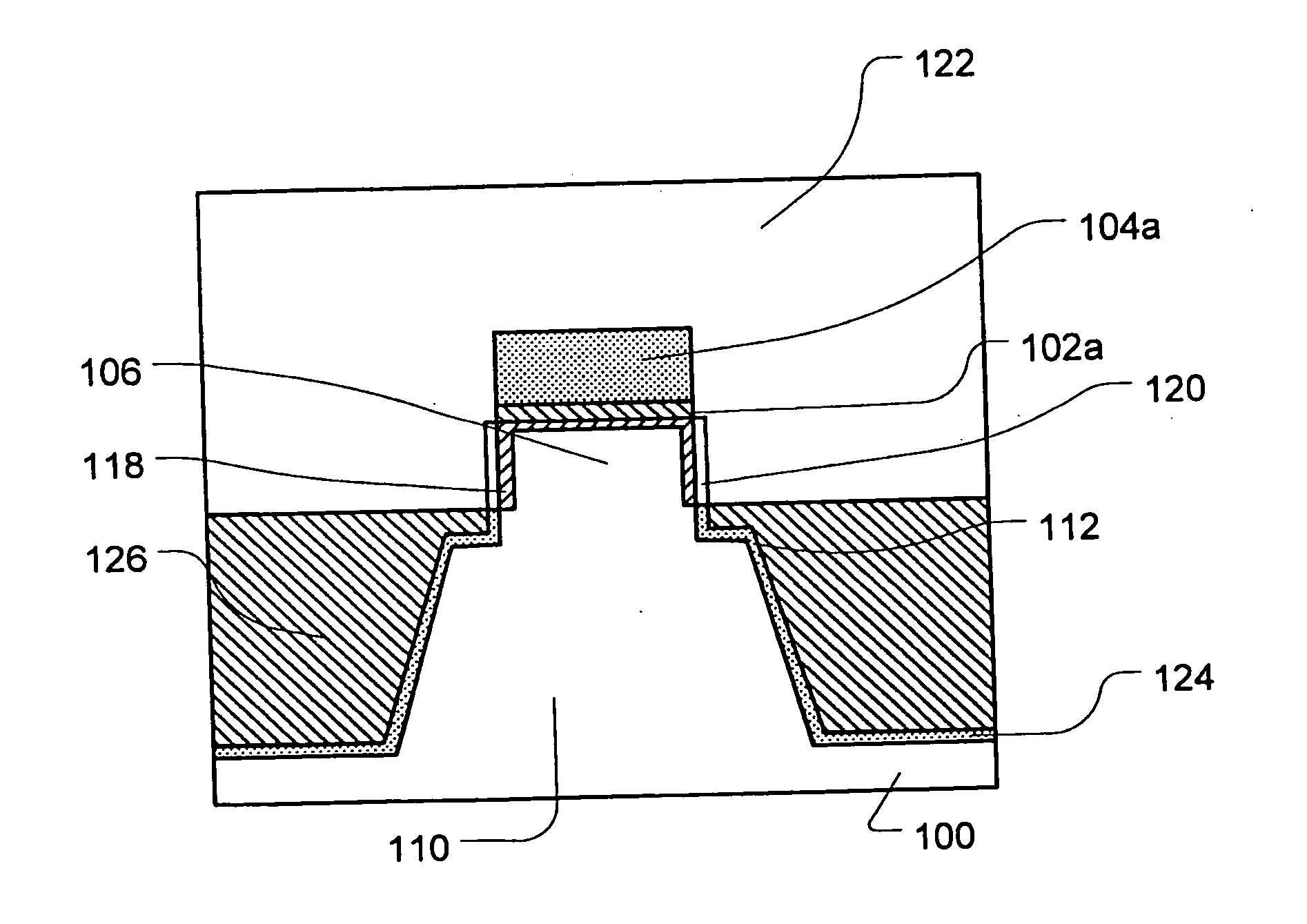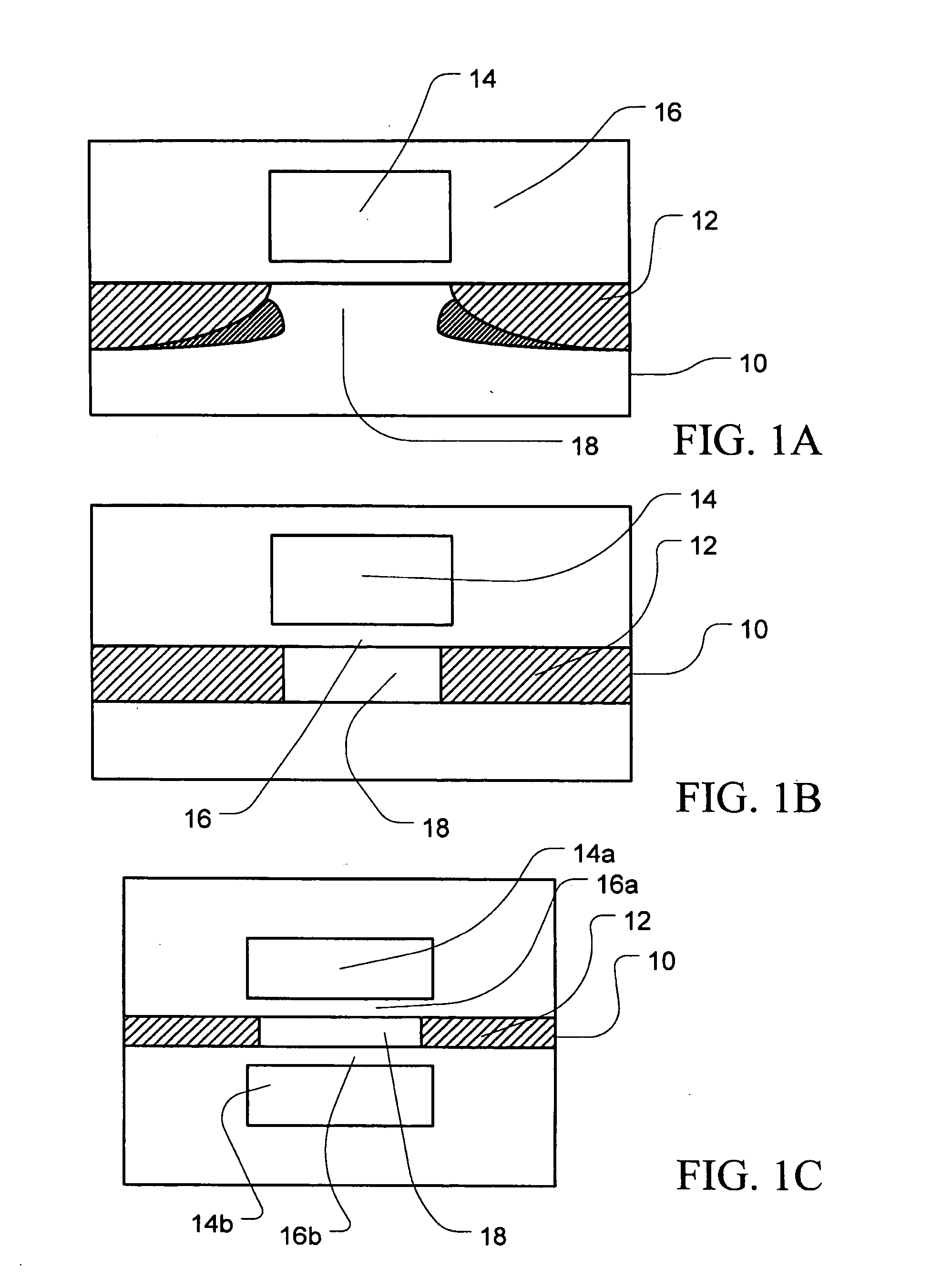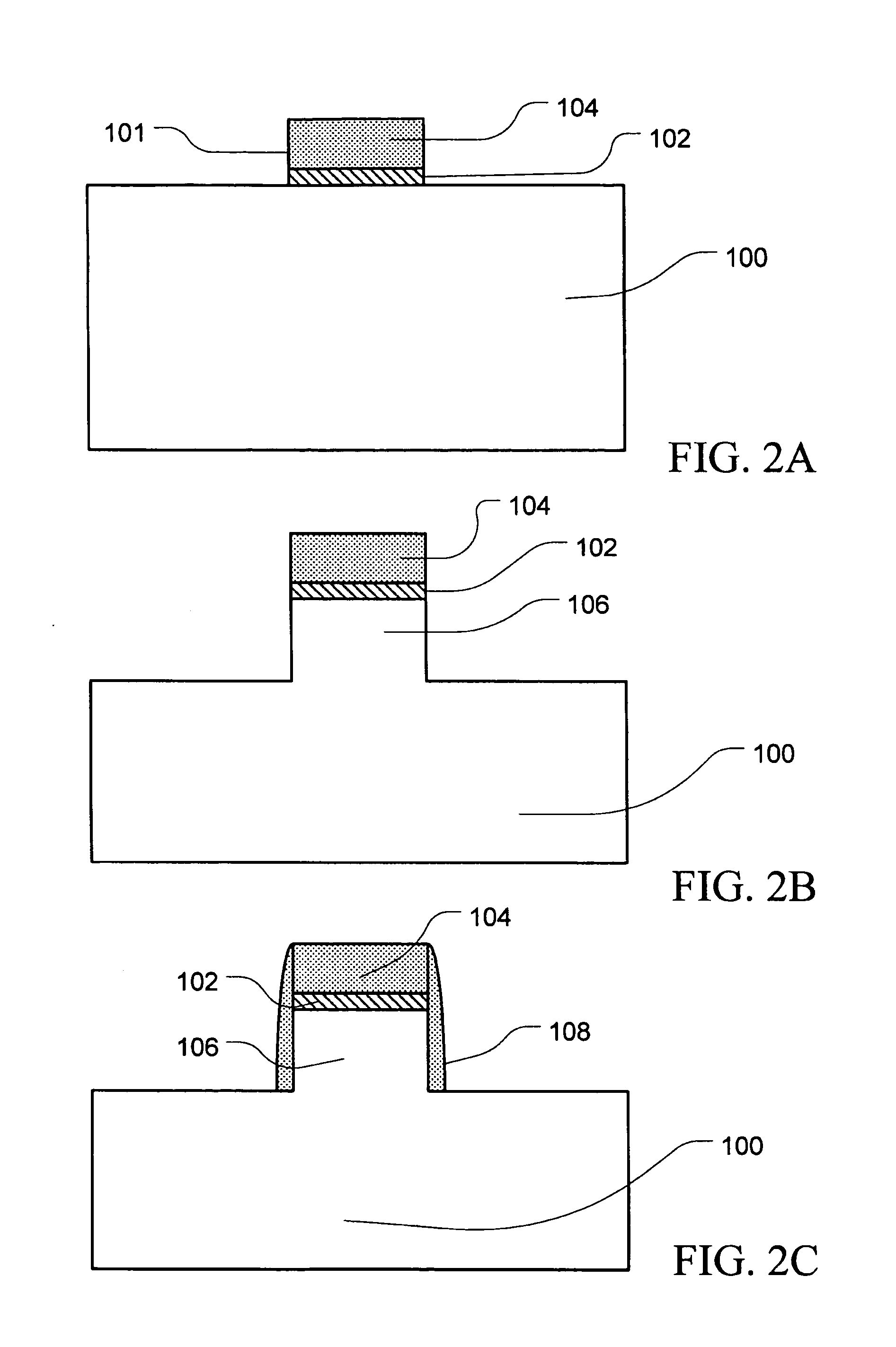Multi-structured Si-fin and method of manufacture
a technology of si-fin and manufacturing method, which is applied in the direction of semiconductor devices, semiconductor/solid-state device details, electrical apparatus, etc., can solve the problems of increasing cost, more complex techniques, and approximating the practical limits of technology, so as to improve the planarity and uniformity, the effect of high material points
- Summary
- Abstract
- Description
- Claims
- Application Information
AI Technical Summary
Benefits of technology
Problems solved by technology
Method used
Image
Examples
Embodiment Construction
[0035] As illustrated in FIG. 2A, an exemplary method for manufacturing FinFET devices incorporating the exemplary fin configuration starts with a semiconductor substrate 100, such as silicon. The substrate utilized may be selected from a range of substrate configurations including, for example, wafers cut from Czochralski (CZ) or Float Zone (FZ) prepared single crystal bulk silicon substrates and modified substrates including, for example, substrates incorporating one or more features such as epitaxial layers, buried insulating layers or doped regions selected to provide the desired structural and performance characteristics in the completed device. An etch mask pattern 101, typically including a buffer layer 102, such as 50-200 Å of silicon dioxide, formed directly on the substrate 100 and an upper layer 104, such as 500-1000 Å of silicon nitride, formed on the buffer layer may then be formed by patterning and etching the layer(s) using conventional photolithographic and dry and / o...
PUM
 Login to View More
Login to View More Abstract
Description
Claims
Application Information
 Login to View More
Login to View More - R&D
- Intellectual Property
- Life Sciences
- Materials
- Tech Scout
- Unparalleled Data Quality
- Higher Quality Content
- 60% Fewer Hallucinations
Browse by: Latest US Patents, China's latest patents, Technical Efficacy Thesaurus, Application Domain, Technology Topic, Popular Technical Reports.
© 2025 PatSnap. All rights reserved.Legal|Privacy policy|Modern Slavery Act Transparency Statement|Sitemap|About US| Contact US: help@patsnap.com



